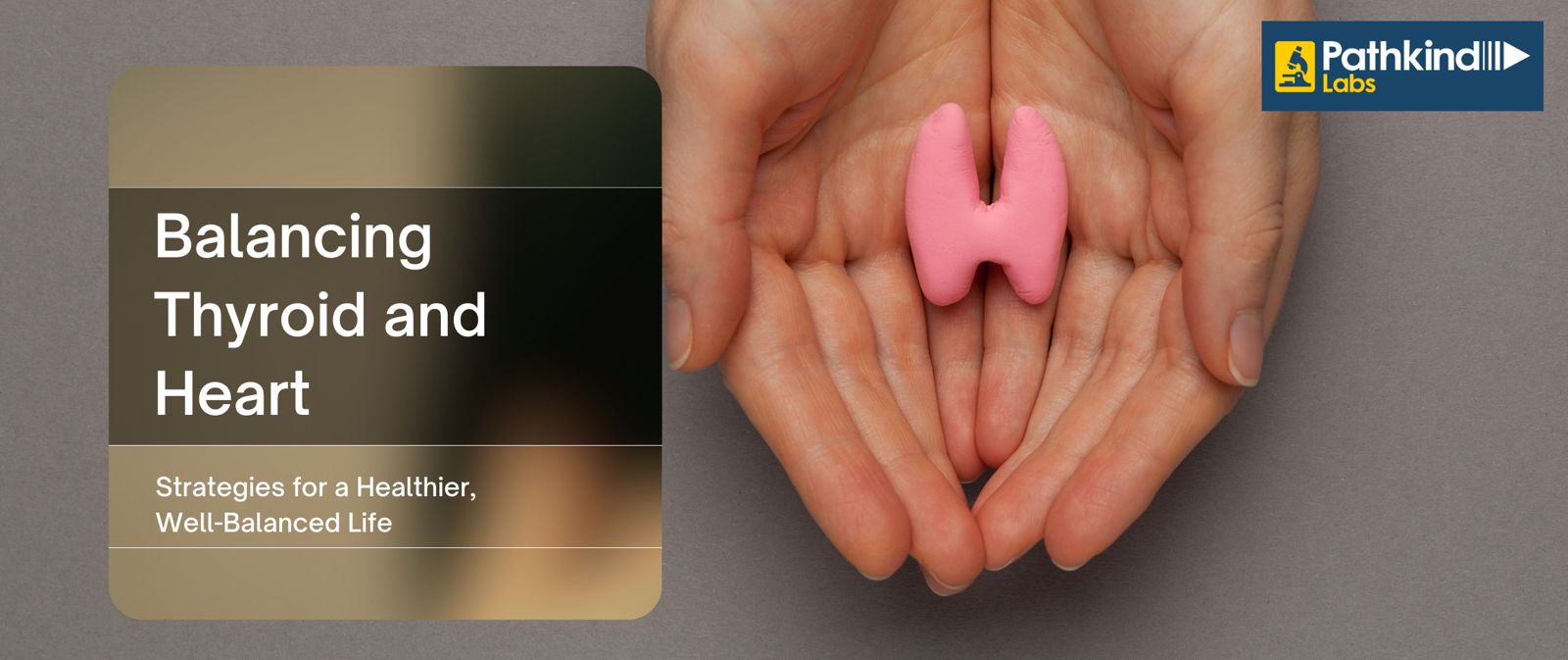The total thyroxine test is employed to identify thyroid conditions. The test determines your blood's level of the thyroid hormone thyroxine (T4). Both too little and too much T4 have been linked to various thyroid disorders. A blood test denoted as thyroxine test aids in the diagnosis of thyroid disorders. The thyroid is a little butterfly-shaped gland located at the base of your neck. The hormones your thyroid generates, regulate how your body consumes energy. These hormones affect your mood, muscular mass, weight, heart rate, and body temperature. In children, thyroid hormones affect growth, too. This test is also known as a thyroxine screen, total T4 concentration, and total T4 test.
What is the Total T4 (Thyroxine) test?
The total thyroxine test is employed to identify thyroid conditions. The test determines your blood's level of the thyroid hormone thyroxine (T4). Both too little and too much T4 have been linked to various thyroid disorders. A blood test denoted as thyroxine test aids in the diagnosis of thyroid disorders. The thyroid is a little butterfly-shaped gland located at the base of your neck. The hormones your thyroid generates, regulate how your body consumes energy. These hormones affect your mood, muscular mass, weight, heart rate, and body temperature. In children, thyroid hormones affect growth, too. This test is also known as a thyroxine screen, total T4 concentration, and total T4 test.
What is the purpose of the Total T4 (Thyroxine) test?
The thyroid is a gland in your throat's front that produces hormones and controls several vital processes, such as how much energy you consume, how much you weigh, and how hot or cold you are. Your body uses T4 in a few different ways. One form interacts with a protein to carry out specific functions, whereas another form does not, enabling it to carry out various functions. The total T4 test measures total T4 levels, which are made up of both forms and free T4, or T4 that isn't bound to any proteins.
- Keeping an eye on a synthetic hormone medication (synthetic triiodothyronine [T3] will cause low total thyroxine [T4]).
- Monitoring thiouracil and other anti-thyroid medications used in the treatment of hyperthyroidism.
- When the thyroxine-binding globulin is normal and no non-thyroidal illnesses are present, the index of thyroid function is.
When there are no anomalies in how proteins attach to them or non-thyroidal illnesses present, total T4 measurement provides a good picture of clinical thyroid health. The amount of total T4 can fluctuate as a result of modifications to the binding proteins, while the level of unbound hormone can remain constant.
What does the Total T4 (Thyroxine) test diagnose?
The total T4 test calculates the amount of T4 (also called thyroxine) in the blood. The T4 test is used to evaluate the thyroid's health and to identify thyroid abnormalities including hyperthyroidism and hypothyroidism. T4 is a hormone that affects metabolism and growth. This test measures both Free T4 (thyroxine that hasn't connected to blood proteins, or Free T4) and T4 that has, and is known as Total T4, and Free T4 (FT4) (most T4 is bonded).
To determine how well your thyroid is functioning, a T4 test is utilised. The following disorders may impact your thyroid and are used to help diagnose and monitor thyroid disease:
- When your thyroid gland doesn't produce enough thyroid hormone to fulfil your body's demands, you have hypothyroidism, also known as an underactive thyroid.
- When your thyroid gland produces more thyroid hormone than your body requires, the condition is known as hyperthyroidism or an overactive thyroid.
- Conditions of the pituitary gland, a gland at the base of your brain that produces TSH (thyroid stimulating hormone). Your thyroid gland's production of T4 is regulated by TSH. A T4 test can be used to determine if your thyroid or pituitary gland is the source of any abnormal TSH test findings.
A T4 test could be performed in some circumstances as a component of a collection of tests known as a thyroid panel. TSH testing is one of the thyroid tests included in a thyroid panel.
Why do you need a Total T4 (Thyroxine) test?
If your doctor suspects a thyroid issue, you could require a T4 test. A TSH test is often performed first. A T4 test could be performed to find out more if your TSH readings are abnormal. If a family member has experienced thyroid disease, your doctor may request a T4 test since thyroid issues frequently run in families. If you have symptoms of having too much or too little thyroid hormone, a T4 test may also be necessary.
Hypothyroidism (lack of thyroid hormone) symptoms might include:
- Gaining weight
- Fatigue
- Skin dryness
- Thinning, dry hair
- Having a high sensitivity to cold
- Heavy or irregular menstruation cycles or issues with conception
- Reduced heartbeat
- Depression
Hyperthyroidism (excess thyroid hormone) symptoms might include:
- Anxiety, trepidation, and irritation
- Despite the possibility of an increase in appetite, weight loss
- Hand trembling and muscle wasting
- Sweating or having extreme heat sensitivity
- An issue with the pace or rhythm of your heartbeat called Arrhythmia
- often passing the poop (poops)
- Goitre (an inflamed thyroid gland)
- Sleep issues and weariness
Preparation and procedure Required for Total T4 (Thyroxine) Test
A thyroxine blood test typically requires no extra preparation on your part. Let your physician know what medications and supplements you are taking because some of them may alter your test results. But, don't discontinue taking any medications without first consulting your provider. You might need to fast (not eat or drink) for a few hours before the test if your doctor has requested further testing on the blood sample you provided. If there are any particular instructions to follow, your healthcare professional will inform you of them.
A doctor will use a small needle to take blood from a vein in your arm. Following the insertion of the needle, a tiny quantity of blood will be collected in a test tube or vial. You can feel a tiny sting as the needle enters or is removed. Generally, this needs less than five minutes.
Understanding of Total T4 (Thyroxine) test results
Normal levels:
Pediatric
- 5.0-18.5 mcg/dL for 0–5 days.
- 5.4-17.0 mcg/dL for 6 days to 2 months.
- 5.7-16.0 mcg/dL for 3-11 months
- Ages 1 to 5: 6.0–14.7 mcg/dL
- Ages 6 to 10: 6.0 to 13.8 mcg/dL
- Ages 11 to 19: 5.9–13.2 mcg/dL
- Adult (aged 20 years or older): 4.5–11.7 mcg/dL
Interpretation:
- In cases of hyperthyroidism and patients with acute thyroiditis, values more than 11.7 mcg/dL in adults and greater than the age-related cut-offs in children are seen.
- In children, values below the age-related cut-offs or 4.5 mcg/dL are observed in hypothyroidism, myxedema, cretinism, chronic thyroiditis, and sporadically subacute thyroiditis.
- Pregnant women and people using estrogen-containing medications both have elevated total thyroxine (T4) levels. Thyroxine-binding globulin (TBG) levels in these individuals have risen, resulting in higher total T4 levels.
- Patients receiving therapy with anabolic steroids or nephrosis exhibit reduced total T4 (decreased TBG levels).
- For certain hyperthyroidism instances, a stimulation test for thyrotropin-releasing hormone may be necessary.



















